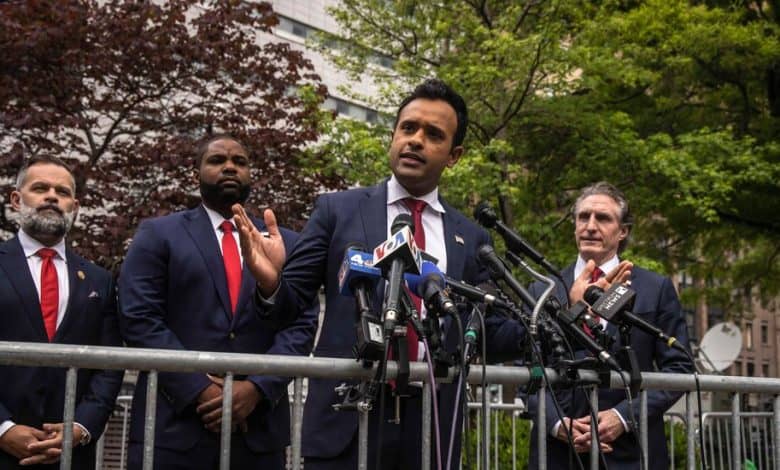Trump Has Long Prized Certain Tactics. His Trial Has Highlighted Them.

There are few distractions in the courtroom while Donald J. Trump’s criminal trial is in session. Lawyers and witnesses talk. Onlookers are tense and silent. And a squadron of armed court officers and Secret Service agents guards the room.
But as Michael D. Cohen explained this week why he had broken with his former boss in 2018, after saying he spent more than a decade doing Mr. Trump’s bidding, reporters turned away from him to stare at one of the trial’s most noticeable interruptions.
A parade of Mr. Trump’s Republican allies — a governor and a former presidential candidate, among others — marched into the courtroom, living examples of the loyalty that Mr. Cohen had just described, and would soon disavow.
Central aspects of Mr. Trump’s operating style are key to the complex story the Manhattan district attorney’s office has told. And those hallmarks are all around the courthouse.
Prosecutors are relying on Mr. Cohen’s testimony, even as Mr. Trump’s lead lawyer, Todd Blanche, took a sledgehammer to the former fixer’s credibility this week, forcing him to acknowledge times in the past when he has lied under oath.
But whether Mr. Trump is convicted, acquitted or the case ends with a hung jury, the trial has underscored the former president’s favored tactics and behavior over the decades — using allies as bullies, obsessing over the press, placing a premium on beauty and encouraging shows of loyalty. That recognizable patternhas helped him win one election and may propel him to a second victory, as he has reshaped the Republican Party into an entity that stands for whatever Mr. Trump wants.
